A new University of Maryland study of campus air samples revealed that chemical compounds from Canada’s historic 2023 fires lingered in the air, forming an ‘atmospheric soup.’



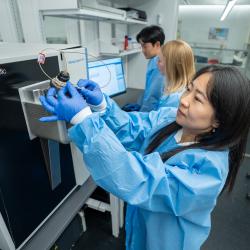
UMD Chemistry and Biochemistry Associate Professor Ling Hao is on a quest to decode the molecular changes that cause neurodegenerative conditions like Alzheimer’s and Parkinson’s diseases.
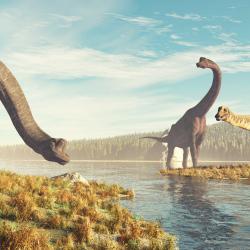
New University of Maryland research suggests that dinosaur parenting strategy fundamentally reshaped the Mesozoic world, with “latchkey kid dinosaurs” filling ecological niches their parents did not.
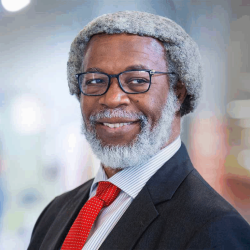
The Barry Prize honors scholars who have “made outstanding contributions to humanity’s knowledge, appreciation, and cultivation of the good, the true, and the beautiful.”
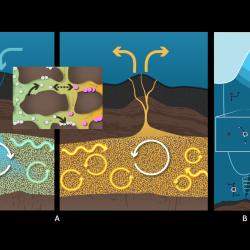
The researchers will investigate how to accurately measure organic compounds of ocean worlds from space and determine whether they are indicators of life or habitability.
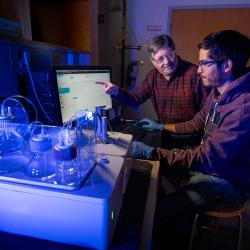
UMD Chemistry and Biochemistry Professor Lyle Isaacs and his team developed “molecular containers” that can trap anesthetic drugs and flush them from the body, speeding up patient recovery and improving hospital efficiency.

Physics Professor Maissam Barkeshli’s background in studying emergent collective phenomena will guide his approach to investigating mechanisms underlying AI and machine learning.

As a research scientist at Colgate-Palmolive, Hakeem Henry (Ph.D. ’21, chemistry) develops unique formulations for the personal care products millions of people use every day.

UMD Computer Science Lecturer Matthew Nolan brings his experiences in music, art, computing and game design to the Immersive Media Design program.

The Computing Catalyst sponsored 31 University of Maryland students to attend the conference in Chicago.
